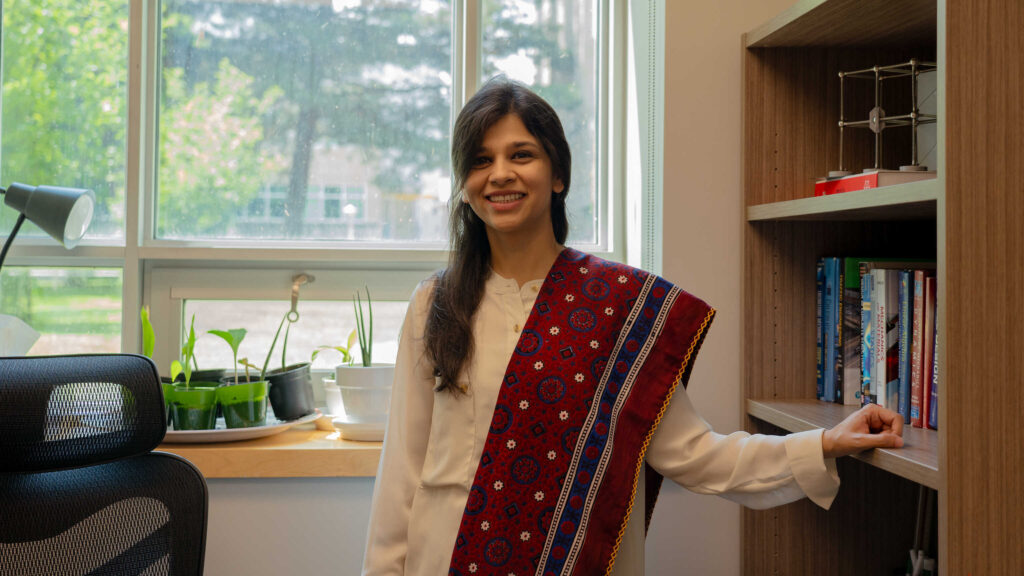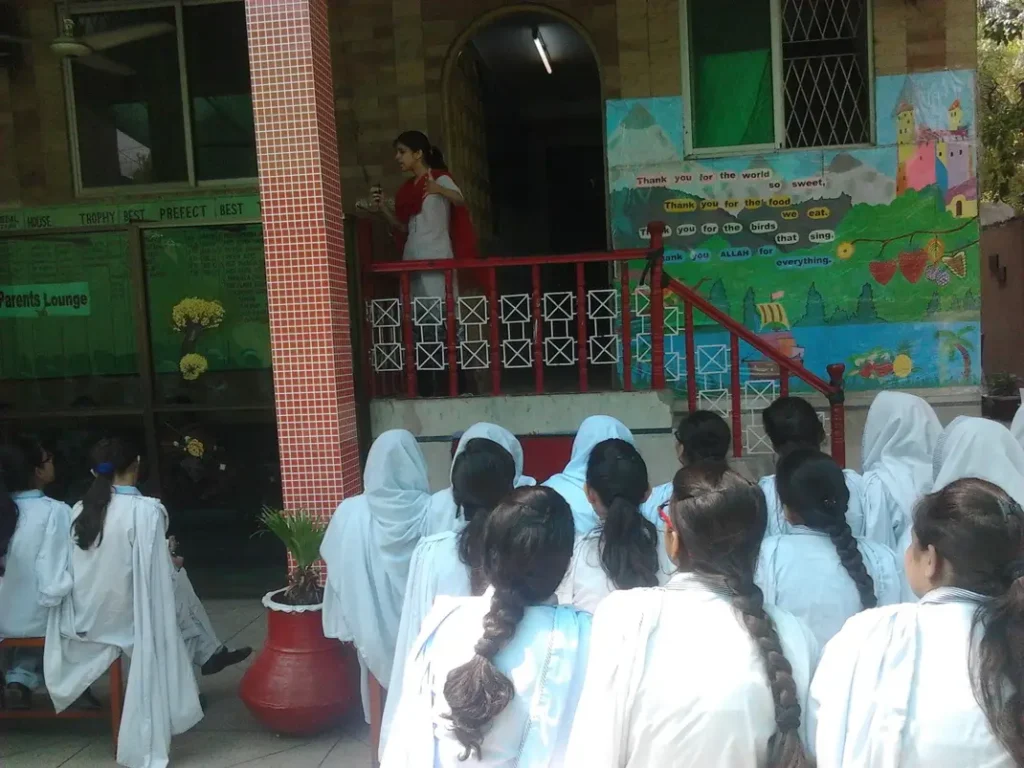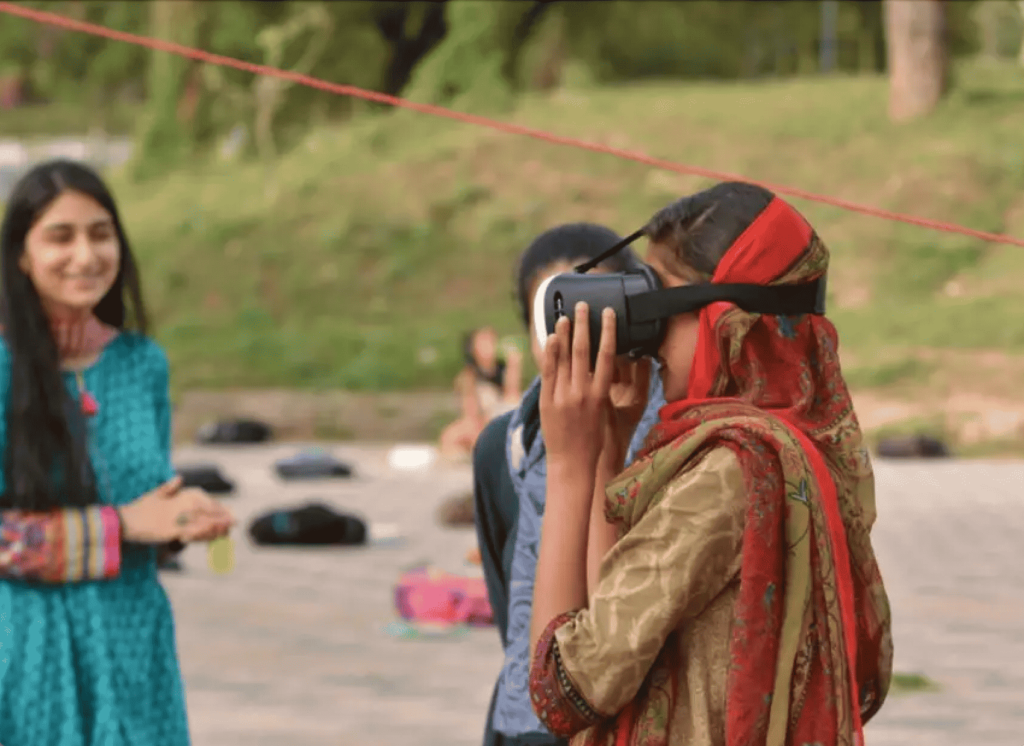
On October 8, 2005, Pakistan endured a 7.6-magnitude earthquake, resulting in more than 80,000 causalities. Working closely with the survivors who were internally displaced from the tragedy was teenaged Ramla Karim Qureshi, now McMaster civil engineering’s newest assistant professor and founder of Women Engineers Pakistan. The natural disaster left her both devastated and moved to create change.
“I remember thinking, ‘why don’t we have good solutions to these impending hazards?’” she recalls.
The curiosity to find the answers dictated her career path and subsequently helped mold her into the women in engineering leader she is today. Her first pursuit was an education in earthquake engineering.
Overcoming the gender bias
After completing her bachelor’s in civil engineering in Pakistan, Qureshi travelled to the United States as a Fulbright scholarship recipient to complete her master’s in earthquake engineering, and later her PhD focusing on structural fire engineering at the University of Buffalo. As a student, Qureshi was part of the University at Buffalo’s Earthquake Engineering Research Institute student chapter, who frequently visited McMaster’s campus and hosted McMaster student visits across the border. She has now joined the department of civil engineering at McMaster as faculty in January of 2024.

While she has achieved great academic success, the journey to get there was anything but easy, Qureshi says.
“To say it was hard is an understatement because at times it was absolutely unbearable. It was very hard to prove that I belonged and then keep proving myself every day. Being denied opportunities just on the basis of my gender. Being denied humanity sometimes. Sexism in benevolence, microaggression and misogyny played a large role in my experience as a young woman who was studying and eventually practicing engineering.”
In her first ever engineering class, Qureshi was one of ten girls in a classroom of 160 people. Her ability to excel in the program was challenged immediately, as her professors would ask her what she was doing in the program, claiming that engineering was too hard for women.
“I couldn’t stop myself, I just blurted out, ‘we’re here to prove you wrong in this mentality’” she says.
Despite the persistent discouragement, Qureshi completed her undergraduate degree in civil engineering, however being a practicing engineer confronted her with yet another wave of disparaging treatment. From being told jobs were too difficult for her to complete, to being denied the opportunity to meet with clients or travel abroad to complete assignments, her ability to showcase her full potential in the workplace was frequently intercepted and cut short.
“There was this invisible wall in front of me, and I had to dig my way out every single time!” she says. “And this is such a global issue, I didn’t feel like it was any better in North America, it just had its own set of difficulties. It’s been hard equally, everywhere.”
Her experience of isolation within engineering, a field that she loves so deeply, unknowingly kickstarted a national movement that would change Qureshi’s life.
Women Engineers Pakistan
In 2013, deep in her frustration, Qureshi turned to social media to air her grievances and created a Facebook page titled, “Women Engineers Pakistan”. Overnight, it went viral. People started joining the page by the dozens, engaging in conversations about shared experiences and pain points.
As the popularity of Women Engineers Pakistan increased, Qureshi was invited to visit a high school to speak to the young women students about career options. She recalls standing in front of the group of shy and timid girls, who transformed before her eyes when she introduced them to paper microscopes and scientific tools. Within a few minutes the whole classroom was charged with excitement.
“They were all chatting and asking proper scientific questions. No one had let them experience science in its tangible aspects, and they had been systematically deprived of the joy of discovery,” she says.
That experience changed something in Qureshi.

Her newfound passion for STEM outreach took Women Engineers Pakistan beyond a social media channel and transformed it into a three-tier program that empowers women of all ages.
Qureshi began by reaching out to undergraduate and graduate students at different universities to create campus ambassadors who would facilitate informative and engaging visits to local high schools. The ambassadors served as role models and mentors to younger students, creating a pipeline aimed at inspiring young women to see themselves in STEM. The campus teams slowly spread out to over eight cities and operated as a peer-to-peer motivational network.

Qureshi realized that while the ambassadors played a vital role in inspiring the next generation of STEM students, they themselves also needed the support of role models. As a result, she expanded Women Engineers Pakistan to provide software and leadership training for the campus ambassadors.
“By providing training that would otherwise be inaccessible to them for numerous reasons, we are giving an edge to our women students as they prepare to enter the workforce,” Qureshi says. “We are trying to level the playing field when they apply to jobs where men are predominantly selected by employers.”
But the need for more women empowerment in the field didn’t stop there.
“I realized that we’re building these amazing leaders, but then throwing them out into a workplace that is not receptive to them and soon their motivation is fizzled out,” she explains.
Going one step further, Qureshi began to assemble a team of professional women working in the engineering field as mentors. The organization became a full cycle network, with the undergraduate students also being mentored by relatable role models.
Over a decade since its creation, Women Engineers Pakistan’s wrap-around approach has led to members creating their own companies and start-ups, earning the organization recognition from the government of Pakistan and partnerships with the United Nations, World Bank and other global businesses and organizations.
The work being done by Qureshi and her team continues to pave the way for social change in Pakistan.
The importance of allyship
Women Engineers Pakistan’s prosperity, Qureshi explains, comes from a fundamental understanding of the importance of male allyship. Feminism is as much a men’s issue as it is a women’s issue, she says. “It is impossible to lead a women’s empowerment intervention without the involvement of men.”
In every campus ambassador team, Qureshi mandated that 20% of the members had to be men. Representation of men played a critical role in the organization’s success, she says.
“By visiting high schools and advocating for more women in STEM, the men were also signalling to the young girls that they have men in this field who will welcome and support them. That is incredibly empowering for the men as well as the women.”


Acknowledging family dynamic roles in women empowerment was also a critical learning for Qureshi. She adapted the Women Engineers Pakistan’s outreach model to include meeting with parents and guardians of girls and women.
“Understanding the roles fathers or brothers play in women and girls’ access to education was important for me. We can’t alienate those people that make such important decisions for those girls. I was also learning a lot of humanity and the application of tenets of culture studies within this work; STEM outreach is breaking the shackles of a lot of people’s minds.”
Looking to the future
As an established woman leader in the field, Qureshi summarizes her future approach in one word: responsible.
“My job now that I’m on the other side of the table is to make sure that there is access, a feeling of belonging and to inspire more women leaders into this field.” she says.
Her advice for girls and women currently pursuing an education in STEM is to never be afraid of making mistakes or allowing imposter syndrome to prevail in making them feel that the engineering field is not for them. Most important, her advice for all engineers is to be aware and acknowledge the systemic barriers society has places against certain groups of people and understand how they can play a role in creating the necessary changes.
“Equity, diversity, and inclusion (EDI) should not be just a catchphrase. Live EDI. Understand it. Resonate with it. Only then can we truly get all people to contribute for normative change, especially within STEM fields. People like to define engineering as dry math and difficult physics, but in my head, engineering is an artform. EDI should be infused into everything we do as engineers; our end users are people.”
